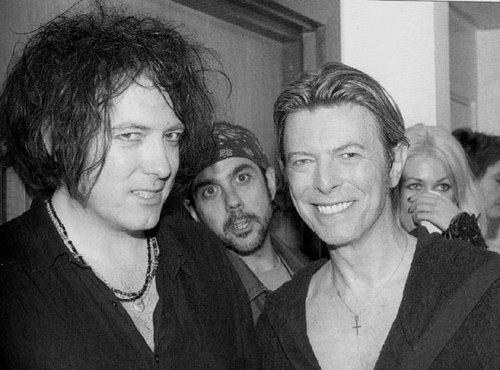
"Music itself is going to become like running water or electricity."With these words, David Bowie launched the final album of his musical career.
For free, on the Internet.
"I welcome all you web travellers to the first community driven Internet site that focuses on music, film, literature, painting and more, where you can interact with all the members of our adventurous new project, knowing that this is an on-growing builder, added to constantly, and that you will definitely be entertained (sometimes unwittingly)."
The music press was skeptical, but interested. Previous experiments by artists such as Prince had produced mixed results.

"FIRST STUDIO ALBUM IN 8 YEARS"Heathen was produced by Tony Visconti, who last collaborated with Bowie on his 1980 album, Scary Monsters (And Super Creeps). He had also lent his talents to most of Bowie's classic 1970's albums, including the celebrated Berlin trilogy of Low, 'Heroes' and Lodger, on which Mr. Bowie and Brian Eno greeted the punk upheaval with their own merger of the experimental and the visceral.

It had been an interesting, if troubled business. But the two men had hardly spoken to each other in twenty years. Bowie's 2002 phone call took Visconti completely by surprise. Why this attempt to mend fences, now, of all times? And what was the story behind this new material? Did Bowie even care about music anymore?
According to Columbia Records Chairman Don Ienner, "David Bowie is simply one of the most distinctive, influential and exciting artists of our time, and Heathen is a remarkable addition to his incredible body of work." Not a bad endorsement, coming from the record company Bowie had only just spurned.
Something didn't ring true. But Visconti tentatively agreed to work on the new songs.
Bowie was ecstatic (or at least, as ecstatic as he tended to become).
"I've made over 25 studio albums, and I think probably I've made two real stinkers in my time, and some not-bad albums, and some really good albums. I'm proud of what I've done. In fact it's been a good ride."
With his enthusiasm now fully engaged, Bowie insisted upon a bevy of unusual collaborators.



Predictably, within a few weeks Bowie's interest had started to wane. In the end, almost none of the collaborative material was used. When challenged by Visconti he quoted himself from a 1975 interview:
"I get so much fan mail it has to be... read more |